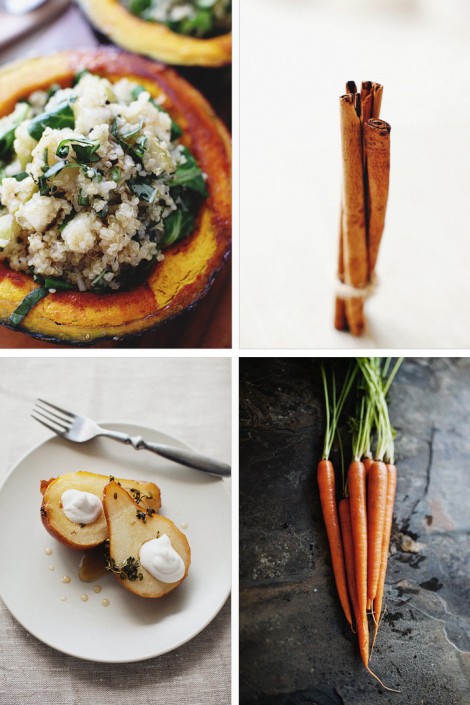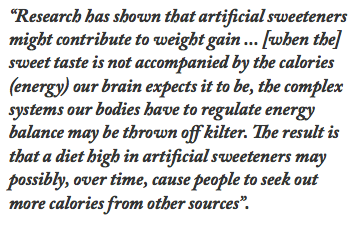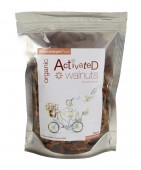Six weeks in, some of you might have sugar out of your system. Some of you won’t, though. The cravings might still be there. What are you feeling? Are you feeling like you’d like to continue. To keep sugar out longer? Not in a draconian-I-must-be-vigilant way, but in a let’s just see how it goes for a bit longer way. Read on…

Some housekeeping:
- My second IQS webinar will be on Monday 13th Feb – next Monday at 6pm. You can sign up here. Click ‘join crowd’ to be signed up for my webinars, and hit ‘attend’ on next Monday’s event to receive a reminder email. Got it?
- If you’re interested, 180 nutrition (a sugar-free, “clean” protein powder…great in your coconut smoothies) has a 15% discount on at the moment, for any readers of this blog. Simply click here for more info.
Some extra soundbites for you
Many of you liked the elevator pitch statements from last week’s newsletter. Here are a few little soundbites to fire off when those around you want to know more about your IQS excursioning, but don’t want to get freaked out. As I say over and over in the ebook: it’s worth being careful that you don’t get too draconian or bozzy or holier-than-thou with this no-sugar business. It’s a crook look. And it puts people off. Go gentle. Suggest some starting points. I’ve found this top 4 list of things to look out for gets interest going:
* Fruit juice.
There’s 8-12 teaspoons in a small bottle/glass. And, yes, freshly squeezed is the same as packaged. Fructose is fructose. Besides, it’s expensive. And a waste of packaging.
* Low fat dairy.
When fat’s taken out of, for example, yoghurt, it’s replaced with sugar to achieve the same fullness of flavour as full-fat. A small individual serve of low fat PLAIN yoghurt can contain 6 teaspoons of sugar.
* Sauces.
Some pasta sauces have more sugar than chocolate topping. Barbecue sauce…oh, you all know the drill.
* Muesli.
Unless it’s a sugar-free (fruit free) version. A lot of muesli contain more sugar than Coco Pops.
A thought on adding sugar back in:
This week in the program you add some sweetness in. I get asked this a lot: will it upset the apple cart just to experience sweetness – even if it’s fructose free? Will it tip dominoes
Yes and no. As always, you need to feel what your body can cope with. Hopefully after six weeks your body can answer this for you. That’s the whole point.
Yes, it will upset things if you head off to back dextrose cakes every day and particularly if your attachment to sugar tends to be emotionally based.
And remember this from the book:

If in doubt, or if things get wobbly, however, defer to savoury – it won’t mess with your head and leave you wondering or hankering (remember, satiating appetite is part of this new learning). Go for nuts, cheese, meat etc. That’s my advice.
new product to try:

I ate these walnuts last night with cottage cheese and cinnamon as “dessert”.
You can buy them here.
your questions answered
This week Michele Chevalley Hedge and my good self answer your questions…
Vanessa asks: What about tomatoes?
Sarah: Well, they’re about 5g/100g. One tomato is about 100g. So one tomato is about 1.5 teaspoons of sugar. So… a few slices on a sandwich is great. Whopping great big tomato stews (especially if you start adding purchased tomato sauces) will wallop you with a sugar hit. Just be aware. I don’t tend to cook saucy things in general. And when I’m out I avoid saucy things completely (due to the gooby, sugary crap invariably added).
Amanda asks: Do we also cut out bread? I mean plain white bread, not just fruit bread? Curious about whole wheat/whole meal bread and bagels.
Sarah: OK. I’ve answered this a few times. But just so you know, I’ll be doing a post after the IQS program ends on why I personally cut out bread AFTER quitting sugar. Stay tuned.
Linsey Bright Wright asks: We have life threatening food allergies at our house. My big problem is with the milk. We can’t do almond (tree nut), my son is also allergic to soy. Is coconut milk a good option? Rice milk has been our staple. Oat milk is hard for us to pallet.
Michele: From a nutritional perspective coconut milk is an excellent source of fat, flavor, full of nutrients, and has very little sugar/fructose. In a quality can of coconut milk you should only find less than 2 gr of sugar in a 100 ml serving. Whilst it is high in saturated fats is also contains medium chain triglycerides- we can use this fat as fuel for our muscles and our brains. Some things to be aware of with coconut milk are :
Does the can of coconut milk contain Bisphenol-A (BPA) ? BPA has an estrogenic effect on our body and is linked to disease states like diabetes, infertility and cancer. Many organic brands of coconut milk have no BPA including Spiral Foods and Ayam Premium Coconut Milk.
Does the can of coconut milk contain guar gum, additives, preservatives or gluten? Many of the overseas cans have their ingredients written in other languages so be careful about this additions.
[You may also like to read this: http://chriskresser.com/3-reasons-why-coconut-milk-may-not-be-your-friend – Sarah]
Marnie says: Would love to know what a typical day’s menu looks like for you.
Sarah: Yep, for sure. A post will follow.
Lauren says: I’m wondering about Polenta? Also are lunch meats like salami and ham ok to have? Do you still eat legumes? And what brand of coconut oil do you use? The ones I’ve seen are really expensive.
Sarah: Polenta is fine – in fact even a lot of FODMAP types are fine with polenta. Lunch meat – avoid salamis and “messed” with meats unless you know they’re made nitrate and chemical-free. I love the Pasture Perfect range. If you’re a supermarket shopper, the best option is to buy a free-range or organic roast chook. Legumes…me, personally, not so much…If I do eat them, it’s only when I soak and cook them myself so I’ve treated the phytic acid. I’ve mentioned the coconut oil thing before: I use Nuigini coconut oil (about $20) because it comes in a Mason jar (which sell for about $6 alone). Expensive? Compared with olive oil? Butter? Chocolate? You can buy it here.
Some extra reading:
Speaking of sugar subtituting and adding in…you might like to read this rundown on fake sugars from Wired.com. Facts and interestingness like this:
University of Texas Health Science Center epidemiologists conducted a 9-year-long study of 5,158 adult residents of San Antonio, Texas [and] found a link between sweeteners and obesity. It persisted even after statistically accounting for gender, ethnicity, diet and beginning-of-diet body mass index. “These findings raise the question whether artificial sweetener use might be fueling — rather than fighting — our escalating obesity epidemic,” they wrote.
Stay tuned next Monday for a sugar-free chocolate reveal!!

